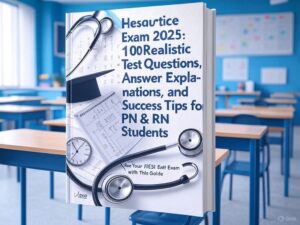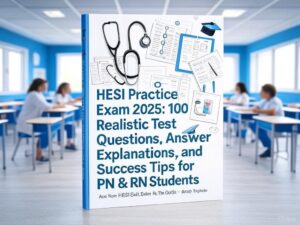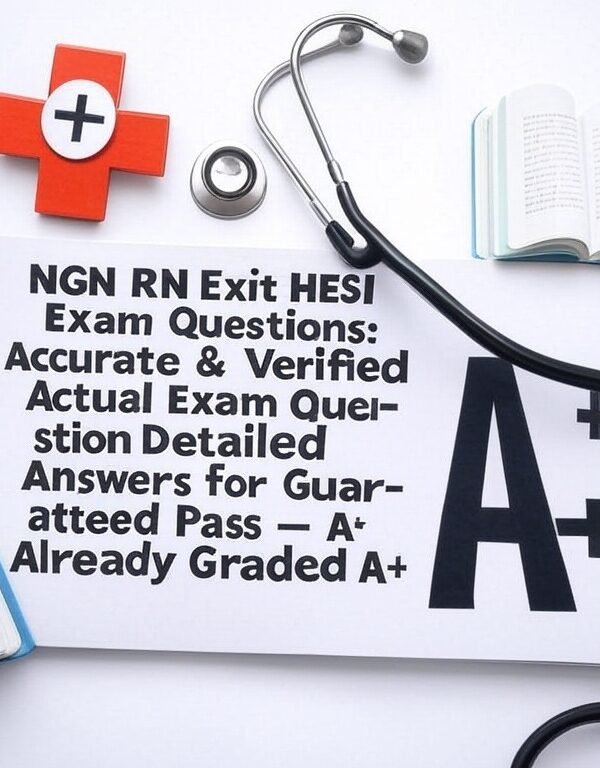-
100 realistic HESI-style practice questions for 2025
-
Detailed answer explanations to strengthen understanding
-
Success tips for PN and RN students preparing for the HESI Exit Exam
-
Mimics the HESI Next Generation NGN Exit Exam format
-
Helps predict NCLEX readiness and boosts exam confidence
Preview
Calcium disodium edetate and dimercaprol is prescribed for a child with lead poisoning.
What does the nurse ask the child’s mother before administering the medications?
“Can your child swallow pills?”
“Has your child been running a fever?”
“Does your child have an allergy to peanuts?”
“How long has your child been exposed to the lead?” – – correct ans- -“Does your child have
an allergy to peanuts?”
Rationale: Dimercaprol must not be used in the presence of a glucose-6-phosphate
dehydrogenase deficiency (G6PD) or peanut allergy, nor should it be given in conjunction
with iron. Therefore, the nurse must ask about allergy to peanuts.
Dimercaprol may be used in conjunction with EDTA to treat lead poisoning. Dimercaprol is
administered by way of deep intramuscular injection. Calcium disodium edetate is
administered by way of the intravenous or intramuscular route. The assessment questions
noted in the remaining options are unrelated to the administration of this medication.
A child is brought to the emergency department by ambulance after swallowing several
capsules of acetaminophen. What statement by the nurse indicates a need for further
information?
“We need to administer the antidote N-acetyl cysteine and dilute it in juice or soda.”
“A loading dose of N-acetyl cysteine has to be followed by maintenance doses.” Incorrect
“We need to give N-acetyl cysteine before we do gastric lavage with activated charcoal.”
“If the child is unconscious, we must do gastric lavage with activated charcoal to decrease
the absorption of acetaminophen.” – – correct ans- -“We need to give N-acetyl cysteine
before we do gastric lavage with activated charcoal.”
Rationale: There is a need for further information if the nurse states, “We need to give
Nacetyl cysteine before we do gastric lavage with activated charcoal.” Activated charcoal
with lavage is done if the child is unconscious, but N-acetyl cysteine cannot be used because
activated charcoal inactivates the antidote. If given orally, it can be diluted in juice or soda,
and a loading dose of N-acetyl cysteine must be followed by maintenance doses.












Reviews
There are no reviews yet.